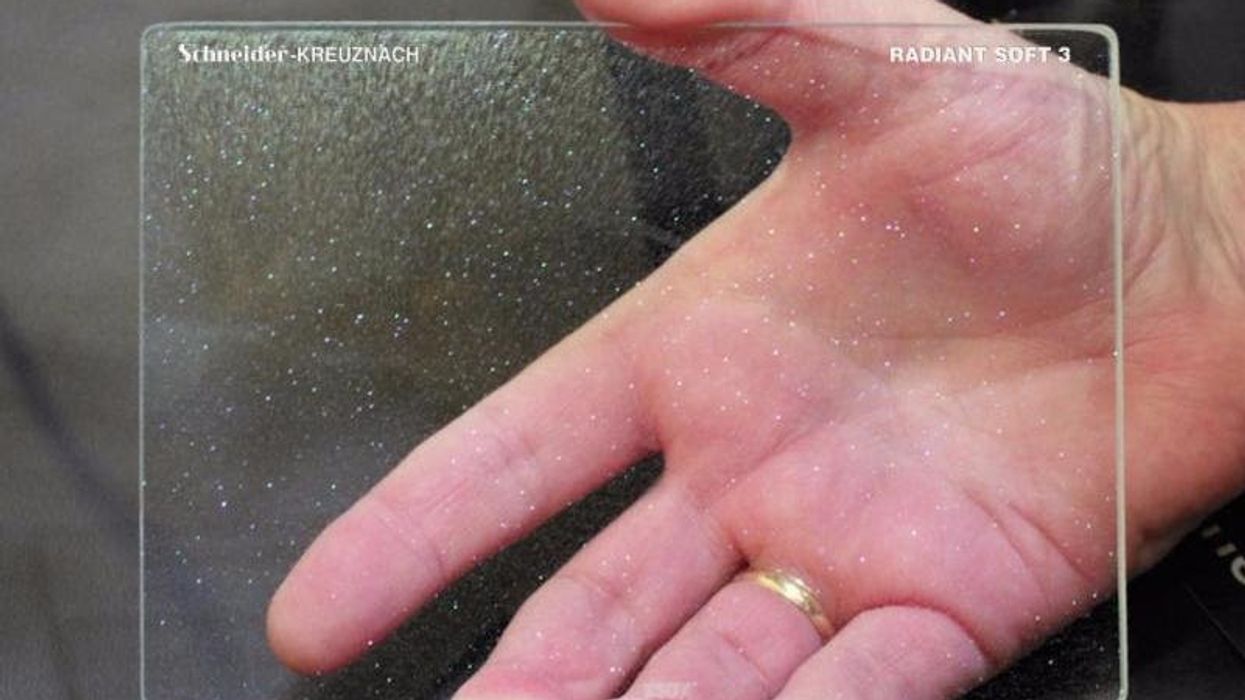Get Better In-Camera Skin Tones with Schneider's New Radiant Soft Filters
The new line of filters from Schneider Optics is designed for the best possible skin tone reproduction without affecting contrast or highlight bloom.

Perhaps the single most important element of most cinematic images is human skin tone. We evaluate the color quality of a camera based almost entirely on how well it makes people appear, and a huge chunk of time in color grading is spent ensuring that the stars look their best. This job can be made easier with proper lens filtration by essentially applying a diffusion effect to the light before it even hits the sensor. With the new Radiant Soft line of filters from Schneider, the venerable lens and filter maker has focused on flattering, glowing, diffuse skintones that don't affect the contrast or highlight of a scene.

As you see in the image above, the filtration applies a gentle smoothing and glow to flesh tones, while not affecting the highlights with artificial glow or bloom. There is some slight lift in the shadows of the filtered image, but that is a very easy tweak to fix in color grading and shouldn't adversely affect the skin tones. How do they do it? According to Schneider:
We have formulated a very special laminate which utilizes geometric two-dimensional (planar) particles which are carefully classified to yield the most flattering result. Planar particle selection is the key to avoiding the undesired result of a diffusion filter that assaults contrast and over-blooms highlights.
While we aren't familiar with the use of planar particles in optical design, the key appears to be the selection process of specific planar particles, which are likely sorted to only affect the wavelengths of light that appear most frequently in skin tone (on the skin tone axis), without affecting other wavelengths, or overall light volume. By targeting that wavelength so specifically, the filter can affect skin tones without blooming highlights in an unnatural fashion.
The filters are premiering this weekend at the Cine Gear Expo.
Tech Specs:
- Strength: ¼, ½, 1, 2, 3, 4, 5
- Sizes: 4x5.65 & 6.6x6.6











